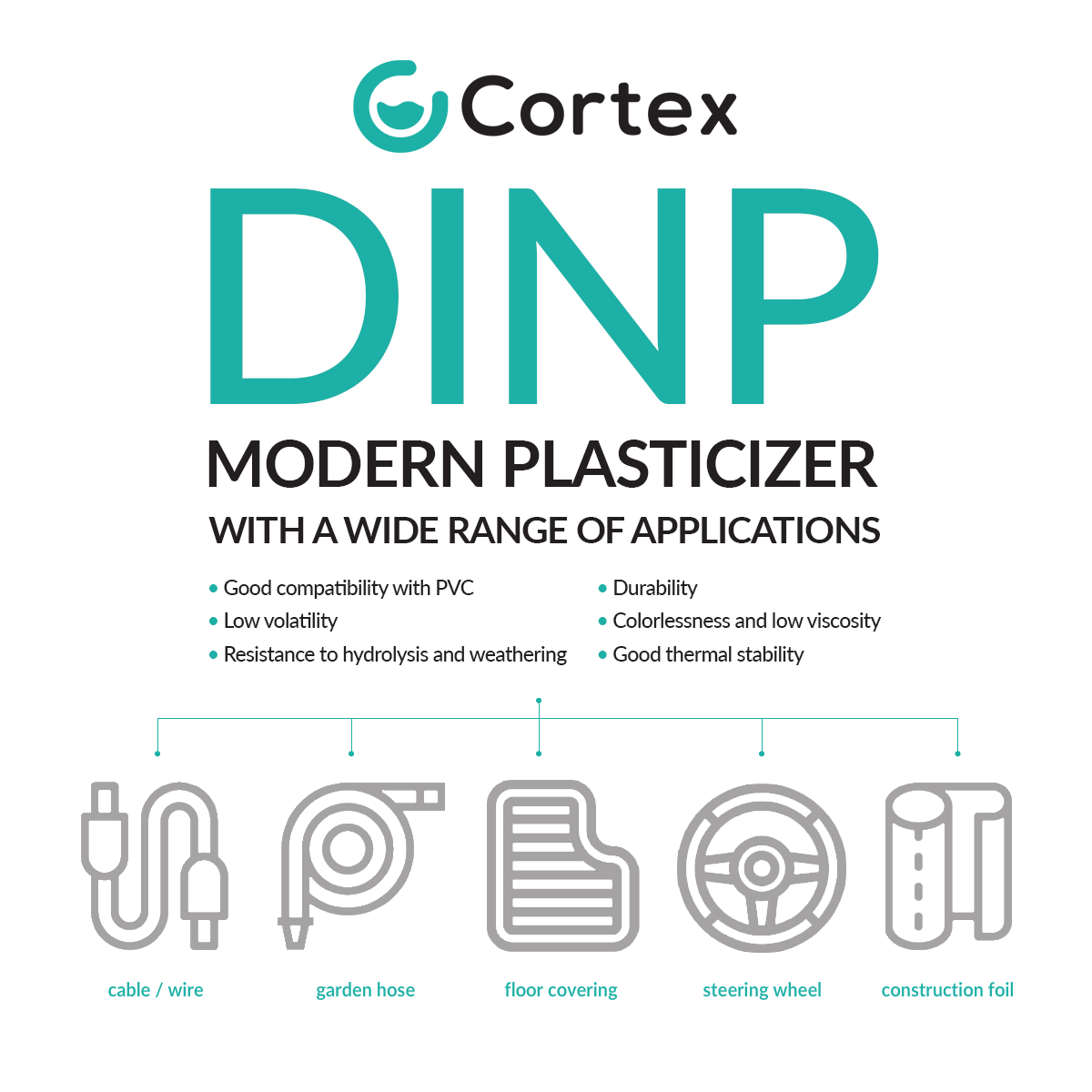DINP – A Modern Plasticizer with Wide-Ranging Applications
What is DINP?
DINP, or Di-Isononyl Phthalate, is a high-molecular-weight plasticizer from the phthalate family. Its primary function is to impart flexibility and pliability to plastics, especially PVC (polyvinyl chloride). DINP is valued for its good cost-performance ratio, stability, and relatively low migration and volatility levels.

Properties of DINP
DINP stands out thanks to a range of features that make it a versatile plasticizer for industrial use:
• Excellent compatibility with PVC
• Low volatility – minimizes the emission of volatile organic compounds (VOCs)
• Resistant to hydrolysis and weather conditions
• Durable – resists degradation over time
• Colorless and low-viscosity – facilitates processing
• Good thermal stability – suitable for high-temperature processing
These properties enable DINP to effectively replace other, more volatile or less safe plasticizers.
Industrial Applications of DINP
DINP is primarily used in soft PVC products, but not exclusively. Its main areas of application include:
Construction
• Roofing membranes
• Wire and cable insulation
• Construction films
• Floor coverings
Automotive
• Dashboards
• Interior vehicle components
• Cable coatings
Electrical Industry
• Wires and cables
• Insulating connectors
Consumer Goods
• Artificial leather
• Garden hoses
• Food wraps (with restrictions)
ℹ️ DINP is not recommended for use in applications involving direct contact with food or in toys intended for children under 3 years of age, in accordance with current EU regulations (REACH, RoHS).
DINP: Safety and Regulations
DINP has been the subject of numerous toxicological studies. Although it has been closely scrutinized over the years, current European standards allow its use across many sectors, with certain limitations. In the European Union, strict regulations govern migration and exposure, particularly under the REACH regulation.
Why Choose DINP?
If you’re looking for an efficient, durable, and proven plasticizer for technical applications, DINP remains one of the most versatile choices. Its balanced cost, ease of processing, and long-term performance are its key advantages.
Have questions about using DINP in specific products? Need help choosing the right plasticizer for your application?
Contact our team – we’re happy to help.

